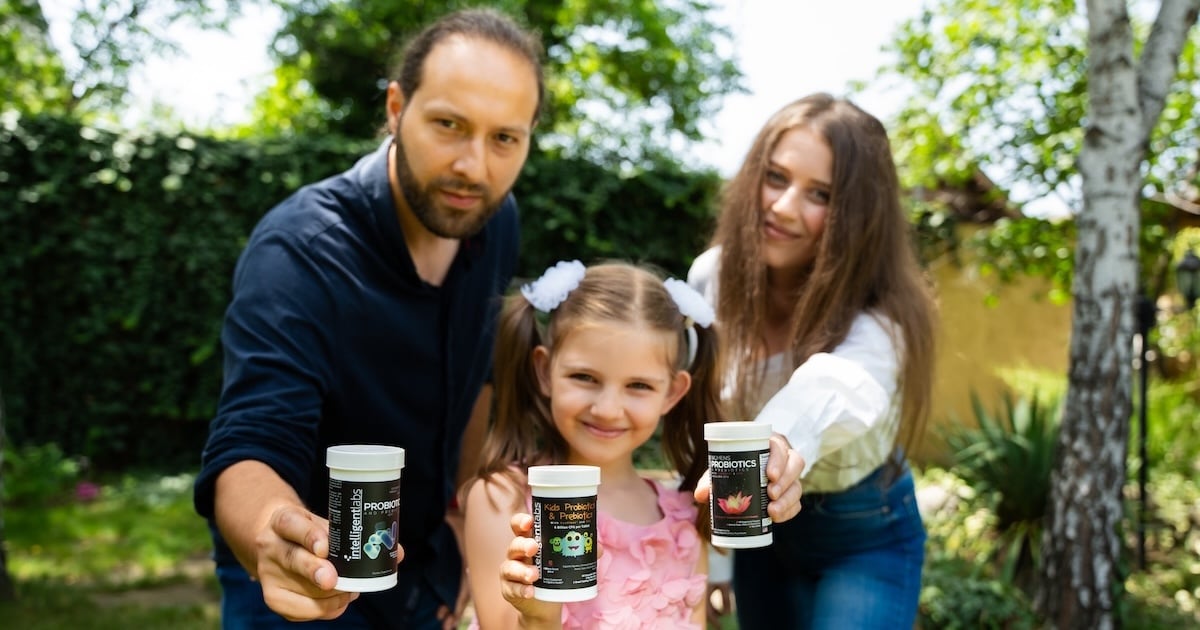Tackling PCOS with diet isn’t a quick fix — it’s a long game! Don’t worry, though; with a little commitment, the right foods, and a sprinkle of patience, you can start feeling like your best self. This guide has everything you need to make it happen: food lists, supplements, and practical tips to support you every step of the way. Let’s keep those PCOS symptoms at bay for good!
Table of Contents
But first, what exactly is a PCOS diet?
Simply put, a PCOS diet is any eating plan that helps ease PCOS symptoms. There’s no specific PCOS diet plan per se. Some women find relief with anti-inflammatory diets, while others benefit from low-carb or even keto diets. For some, a low-glycemic approach works best. While there is evidence that both low-carb1 and low-glycemic2 diets do work for PCOS, we will focus on the anti-inflammatory diet in this article.
So, how can an anti-inflammatory diet help PCOS?
Most women with PCOS have low-grade chronic inflammation, shown by elevated markers like C-reactive protein, white blood cells, and interleukin-18.3 So, could an anti-inflammatory diet help address this?
According to a study on 100 women with PCOS, the answer is a resounding YES! After 12 weeks on a Mediterranean-style anti-inflammatory diet, the women who completed the program (75 participants) saw remarkable results:4
- 63% regained their periods and two even conceived
- Average weight loss of 7.9% (or 6.3 kg)
- BMI reduction of 7.1%
- Waist circumference decreased by 6.6%
- Body fat down by 9.2%
- Visceral fat dropped by 21.7%
Plus, all inflammation, hormone, and metabolic markers improved:
- Total cholesterol decreased, with HDL (good cholesterol) up and LDL (bad cholesterol) down
- Triglycerides significantly reduced
- Fasting blood glucose and insulin levels dropped
- C-reactive protein levels sharply declined
- Testosterone lowered
These results suggest that an anti-inflammatory diet, like the Mediterranean diet, might help you finally get your PCOS symptoms under control!

The PCOS Diet Food List
Most diets can be pretty restrictive, but for PCOS, you’ve got a ton of food options to choose from. Best of all, you won’t even need to worry about counting calories as an anti-inflammatory diet focuses on macronutrient balance. Here’s a good rule of thumb to follow:
- 40-50% carbs
- 20-30% protein
- 30% healthy fats
That being said, plant-based foods should make up most of your calories, especially veggies, fruits, whole grains, nuts, and beans.
Here are the major food groups that will help you fight chronic inflammation and eventually ease your PCOS symptoms!
Vegetables
Choose green leafy veggies such as spinach, kale, cabbage, collard, lettuce, and spring greens. Of course, broccoli and cauliflower are not to be left out – these two are well-known for their anti-inflammatory properties!
Fruits
Fruits come in all colors, sizes, and flavors. But many fruits aren’t just rich in fiber and antioxidants, they’re also powerful anti-inflammatories! Next time you go out to buy fruits, grab some pineapples, avocados, pomegranates, mangoes, olives, berries, grapes, guava, and cherries.
Whole grains
You want to eat complex carbs in an anti-inflammatory diet, not simple carbs that are usually found in processed foods. As such, you should eat high-fiber grains like whole-wheat bread and pasta, oats, buckwheat, and brown rice. These will help you feel full for hours and keep your insulin levels down, too.
Beans and legumes
This particular food group is rich in protein and fiber, plus they’re also loaded with anti-inflammatory compounds, which is perfect for the PCOS diet. Lentils, chickpeas, and several types of beans like red beans, black beans, kidney beans, mung beans, and pinto beans should be added to your daily diet.
Healthy fats
Choose plant-based fats over other types of fats like butter. This includes eating more avocados, seeds, and nuts like walnuts, almonds, and cashews. Omega-3s from fatty fish like salmon, tuna, and sardines are great too—or try a high-quality Omega-3 supplement. Use olive, coconut, or avocado oil for cooking.
Spices
Spices like garlic, ginger, and turmeric bring both flavor and anti-inflammatory power. They’re great in dishes or even smoothies!
Bone broth
Most of us probably drink warm bone broth whenever we get sick. It’s delicious, it’s comforting, and best of all, it really does help us feel better. Bone broth – whether it’s made from chicken, pork, or beef bones – is rich in collagen, amino acids, and various trace minerals. It helps reduce inflammation and boost immunity, which is great for women with PCOS.
Probiotic-rich fermented foods
Fermented foods are naturally rich in probiotics which are live cultures of ‘good’ bacteria. Examples of fermented foods include yogurt, kefir, kimchi, miso, sauerkraut, and kombucha. Eating any of these helps restore balance in our gut which, in turn, supports a healthy immune system.
Not a fan of fermented foods? Check out our probiotic supplements for all ages!

What foods are bad for the PCOS diet?
Anything that causes inflammation is off the menu. This includes processed foods that are rich in sugar and (simple) carbohydrates. Junk food, soda, anything made with high-fructose corn syrup is a no-no. You can drink alcohol but keep it in moderation. Excessive drinking can cause your symptoms to flare up.
While meat is perfectly fine to eat on a PCOS diet, it should take a backseat to plant-based foods. Avoid processed meats like bacon, sausages, and hotdogs. Red meat is fine, just limit it to a few times a week.
Artificial trans-fat should also be avoided like the plague. Read food labels carefully. Anything that lists ‘partially hydrogenated vegetable oil’ should be thrown in the bin – or at least returned to the proper shelf in the supermarket!
The PCOS diet isn’t just a diet, it’s a lifestyle!
Good nutrition is essential, especially when managing PCOS. Following a balanced diet that stabilizes blood sugar is key to long-term symptom management. Whether you go for an anti-inflammatory plan like the Mediterranean diet or a low-carb approach, starting out can be challenging. This is why we’ve prepared some simple recipes to help you transition to an anti-inflammatory PCOS diet, one meal at a time.
Remember, healthy eating and an active lifestyle are power tools for managing PCOS symptoms.5 Staying committed is key, and making daily efforts to maintain healthy habits will help you avoid a symptom relapse.
💬 Something on your mind? Share your thoughts in the comments. We love hearing from curious minds.
📩 And while you’re here, join our newsletter for more smart stuff (and secret perks)!
References:
- Mavropoulos, John C et al. “The effects of a low-carbohydrate, ketogenic diet on the polycystic ovary syndrome: a pilot study.” Nutrition & metabolism vol. 2 35. 16 Dec. 2005, doi:10.1186/1743-7075-2-35 ↩︎
- Marsh, Kate A et al. “Effect of a low glycemic index compared with a conventional healthy diet on polycystic ovary syndrome.” The American journal of clinical nutrition vol. 92,1 (2010): 83-92. doi:10.3945/ajcn.2010.29261 ↩︎
- Duleba, Antoni J, and Anuja Dokras. “Is PCOS an inflammatory process?.” Fertility and sterility vol. 97,1 (2012): 7-12. doi:10.1016/j.fertnstert.2011.11.023 ↩︎
- Salama, Amany Alsayed et al. “Anti-Inflammatory Dietary Combo in Overweight and Obese Women with Polycystic Ovary Syndrome.” North American journal of medical sciences vol. 7,7 (2015): 310-6. doi:10.4103/1947-2714.161246 ↩︎
- Shetty D, Chandrasekaran B, Singh AW, Oliverraj J. Exercise in polycystic ovarian syndrome: An evidence-based review. Saudi J Sports Med 2017;17:123-8 ↩︎




